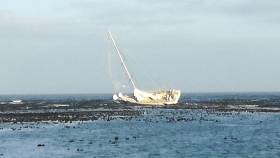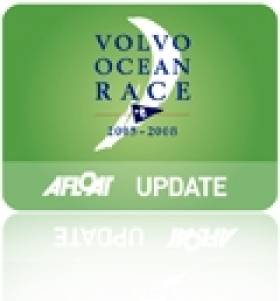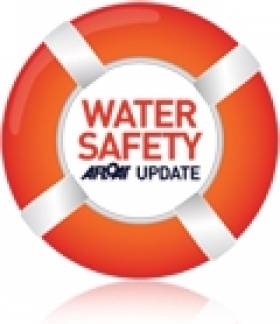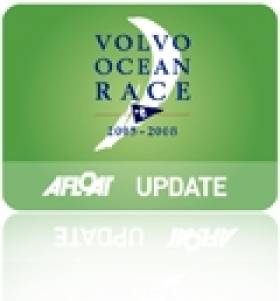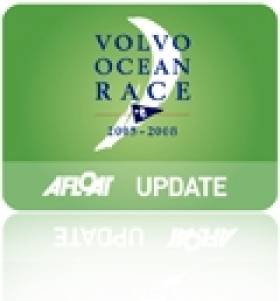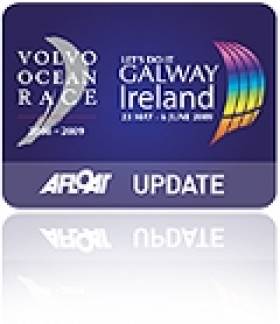Displaying items by tag: Cape Town
Clipper Race: Greenings Crew Evacuated After Running Aground
#ClipperRace - Greenings’ stand-in skipper Andy Woodruf and crew were reportedly doing well after some rest in Cape Town hours after they ran aground on the western side of the Cape Peninsula last night (Tuesday 31 October).
No injuries were reported on board when the boat hit a rocky shoal around 11.40pm local time (9.40pm Irish time) last night, not long after the fleet departed Cape Town on the third leg of the Clipper Race.
However, as a precaution, rescue boats were called to evacuate the crew to shore at Hout Bay.
Unicef, as the closest race vessel to the incident, was initially asked to stand by to assist but was later released to continue racing.
It’s the second major incident to hit the Greenings team after skipper David Hartsthorn suffered a serious hand injury in late August during Race 1 from Liverpool to Uruguay.
The crash will also bring back memories of Team Vestas Wind’s disastrous grounding in the Indian Ocean in the 2014-15 Volvo Ocean Race. That team’s new incarnation as Vestas 11th Hour Racing is faring much better in the latest edition, last week winning the first leg from Alicante to Lisbon.
Meanwhile, the rest of the Clipper fleet continues their race across the southern Indian Ocean from Cape Town to Perth in Australia.
First across the start line yesterday was Dare To Lead, which had to use all of skipper Dale Smyth’s local knowledge of the waters around Cape Town to move into second place as Sanya Serenity Coast was first to round the first mark in Table Bay.
Dare To Lead has since slipped into third behind PSP Logistics, which had been nipping at their heels all of this morning (Wednesday 1 November).
Sanya Serenity Coast is currently leading the way in The Dell Latitude Rugged Race 3, with a 35 nautical mile advantage on their closest rivals.
Visit Seattle, Garmin, GREAT Britain, HotelPlanner.com, Joker Card players Qingdao and Liverpool 2018 make up the rest of the chasing pack, in order, with only four nautical miles separating the front from the back.
Behind them NASDAQ is some 30nm adrift, while Unicef’s crew have some catching up to do after last night’s rescue detour as they currently lie some 96nm behind the leaders.
Abu Dhabi Ocean Racing Wins First Leg of 2014-15 Volvo Ocean Race
#VOR - Abu Dhabi Ocean Racing's VOR 65 Azzam was the first yacht across the finish line in Cape Town this afternoon (Wednesday 5 November), taking Leg 1 of the 12th edition of the Volvo Ocean Race.
The win marks an Irish triumph, too, with VOR veteran Justin Slattery serving as bowman, trimmer and helmsman among a crew that has faced a tough battle for first place since leaving Alicante more than three weeks ago.
Indeed, for the past week Abu Dhabi have been almost neck and neck with Dutch entrants Team Brunel and Chinese debutantes Dongfeng Race Team – the latter coming within one nautical mile of the leaders as Table Mountain came into view, as the VOR website reports.
But the wind shadow caused by that landmark slowed both boats down – and more importantly, provided the opportunity Ian Walker and his crew needed for the final push ahead to victory at 15:10 UTC.
Tourist Dies in Cape Town Charter Boat Capsize
#WATER SAFETY - Irish tourists headed to South Africa have been reminded of the dangers of the sea after a whale-watching vessel capsized near Cape Town at the weekend.
As BBC News reports, British tourist Peter Hyett and crewman John Roberts died when the catamaran Miroshga capsized off Hout Bay on the eastern side of the Cape Peninsula, near the popular seal colony of Duiker Island.
A number of the 39 passengers on board at the time were trapped in the vessel for almost four hours before they were freed by rescuers.
The seas off Hout Bay are a mecca for whale and seal watching, but are known to be rough, with hidden rocks below the surface. Great white sharks are also a regular sight in the waters, attracted by the seals.
But fellow skippers in the area reported fine weather and only slight swells at the time of the capsizing, according to iAfrica.com.
An investigation into the incident is being launched.
VOR Second Leg Cut Short Over Piracy Concerns
#VOLVO OCEAN RACE - The second leg of the Volvo Ocean Race from Cape Town to Dubai has been cut short by organisers as a result of the growing threat of piracy in the Indian Ocean, The Irish Times reports.
The six yachts competing will be protected by armed guards as they are shipped on a secret route to the United Arab Emirates due to piracy concerns.
The boats will be transported by ship from an undisclosed location to Sharjah in the Arabian Gulf, from where they will sprint to the finish line in Abu Dhabi.
All six teams are currently in Cape Town, with Team Sanya, PUMA and Abu Dhabi Ocean Racing hoping to get back in the race after retiring in the first leg.
As previously reported on Afloat.ie, NATO recently foiled a pirate attack on a Spanish fishing vessel between the Seychelles and the Somali coast.
The Irish Times has more on the story HERE.
Team Sanya Hitches a Ride to Capetown (Photo)
#SANYA– Definitely not as intended but neverthless on her way to Cape Town as our picture shows. The Discover Ireland backed Sanya entry in the Volvo Ocean Race has been successfully repaired and is ready to joing the other six yachts in the fleet. The 70-foot yacht suffered hull damage only hours into the race. Still to arrive is Puma, the third boat in the fleet to have suffered damage in the first leg.
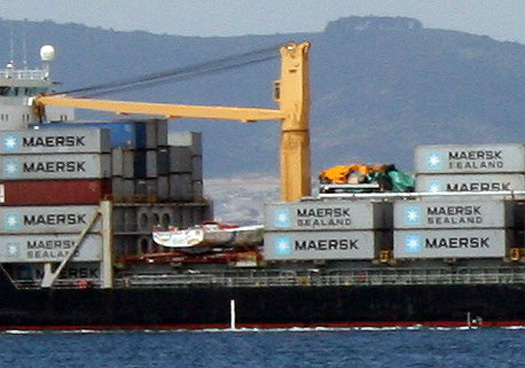
Afloat again and heading for Capetown. Team Sanya is repaired and spotted on a cargo ship
VOR Skipper Cammas Receives French Sporting Honour
Volvo Ocean Race skipper Franck Cammas has been presented with one of France’s most prestigious sporting honours.
The man in charge of the Groupama sailing team was awarded the Grand Prix de l’Académie des Sports in Paris recently, recognising his achievements in sailing in 2010.
These included his skippering of the 100ft trimaran Groupama 3 non-stop around the world in a record-breaking in 48 days, 7 hours, 44 minutes and 52 seconds.
Cammas is only the fifth sailor to be presented with the award, following Whitbread Round the World Race skipper Eric Tabarly, 1983 America’s Cup winner John Bertrand, solo sailor Isabelle Autissier and Alinghi team principal Ernesto Bertarelli.
But Cammas isn't resting on his laurels, as he's currently preparing with his team to compete in the next Volvo Ocean Race kicking off next month.
He will lead a crew of 11 sailors - including Kerryman Damian Foxall - on the 70ft monohull Volvo Open 70 Groupama 4 in the 39,000 nautical mile race, which is set to conclude in Galway next summer and will also involve Wexford sailor Justin Slattery, who is in the crew for Team Abu Dhabi.
The action starts in Alicante, Spain on 29 October with the first in-port race. The first leg to Cape Town then begins on 5 November.
Five Oceans of Smile Too Arrives in Cape Town
Christophe Bullens celebrates his arrival in Cape Town as he finishes the first Ocean Sprint of the Velux 5 Oceans, from La Rochelle onboard his boat Five Oceans of Smiles Too.

Five Oceans of Smiles Too Photo: Ainhoa Sanchez/w-w-i.com
The former Belgian national sailing champion and tank commander in the Belgian army, now runs a yacht charter business. Christophe's boat is named Five Ocean of Smiles after the Smiles charity, which supports 'children who are HIV positive.
The Velux 5 Oceans is the oldest single-handed round the world yacht race which was first held in 1982. The race is the longest and toughest event for any individual in any sport. The race is a series of five ocean sprints within a marathon circumnavigation that covers a 30,000 mile route. The race started in France at La Rochelle with the first leg ending in Cape Town. The following stages go on to Wellington, Salvador, Charleston and back to La Rochelle for the finish.


























